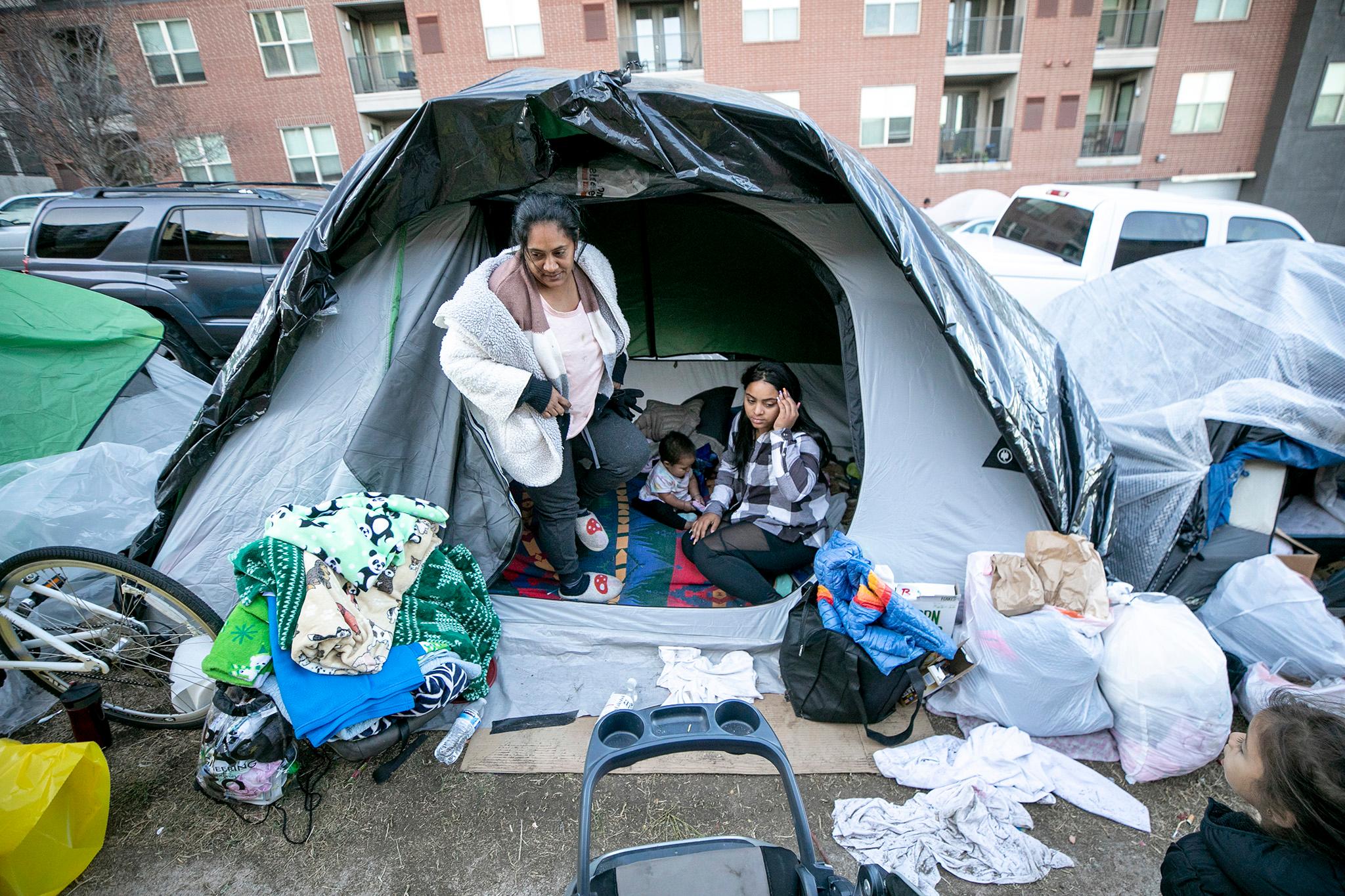Last Wednesday, City Council member Amanda Sandoval counted 38 children sleeping in tents across the street from a city-operated motel that is being used as a shelter. Many were migrants from Venezuela, who recently arrived from the U.S. southern border. Some of the families had maxed-out their allotted time in the shelter, or had been kicked out for violating rules. Many of the parents did not know what they would do next.
By Friday, Mayor Mike Johnston's administration decided the children should come back inside, and invited many families with kids back into rooms in the old Zuni Street hotel.
But Genesis Daniel Perez turned down the offer. While she and her kids could have moved back into a room, her parents weren't extended an invitation, and she refused to leave them behind. Her father was sick and had been hospitalized due to the cold, she said. She wondered if officials would let her parents take her place instead.
"I'll go outside by myself," she told us in Spanish, standing at the edge of the bustling encampment.
By Saturday afternoon, she had renewed hope that they'd all be sheltered together. She heard Johnston was coming to visit the camp; she'd met him before, and she'd ask him again for help.
"I'm trusting in God that they do put us inside because, I mean, I can't go and leave my parents here in the cold," she told us as officials filed into the hotel.
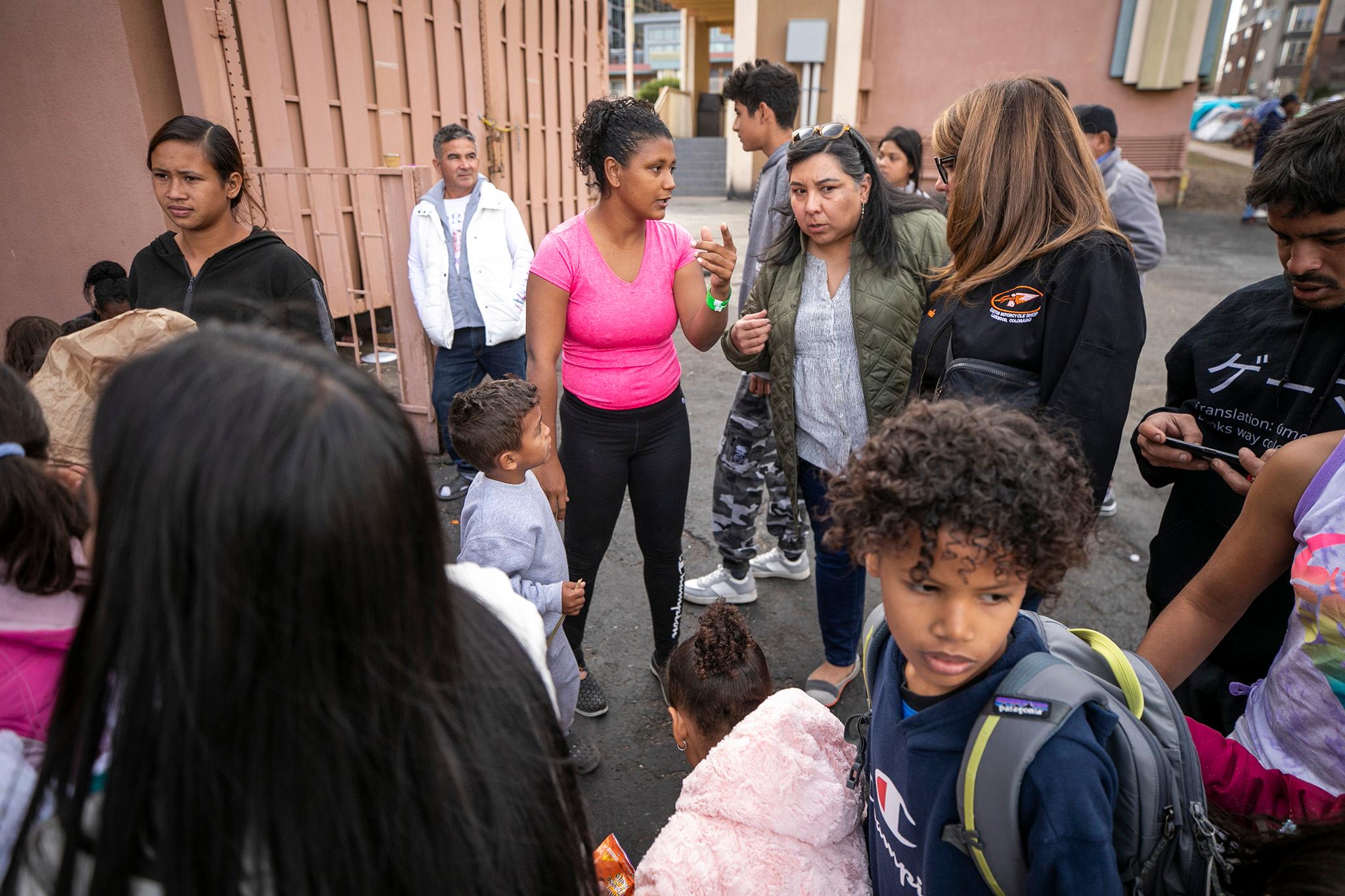
Inside, Johnston met with hundreds of people clamoring for help.
Perez and her family eventually joined a crowd of people waiting to enter a ballroom, where officials and lawyers were preparing to receive them. The city had a few "desired outcomes," Johnston told his team before they let anyone in the room. They'd try to arrange more permanent shelter for some families with kids. But Saturday's big mission: find out who was eligible for work authorization, and get them on a path to a job.
Many of these people were allowed to register to work, he told the group of officials, and just didn't know it. Some, who came to the U.S. before July 31, qualified for Temporary Protected Status, which allows for legal employment; others, who were allowed to cross the border after they signed up on a U.S. Customs and Border Protection mobile app, also qualify. Johnston's team would talk to people, find out who could apply for authorization, then get them started on their paperwork.
"The spirit of this is to both beta test the integration of these systems, see how they're working and identify where the gaps are -- where there are places we should be asking different questions, get that information directly from people," he told his team.
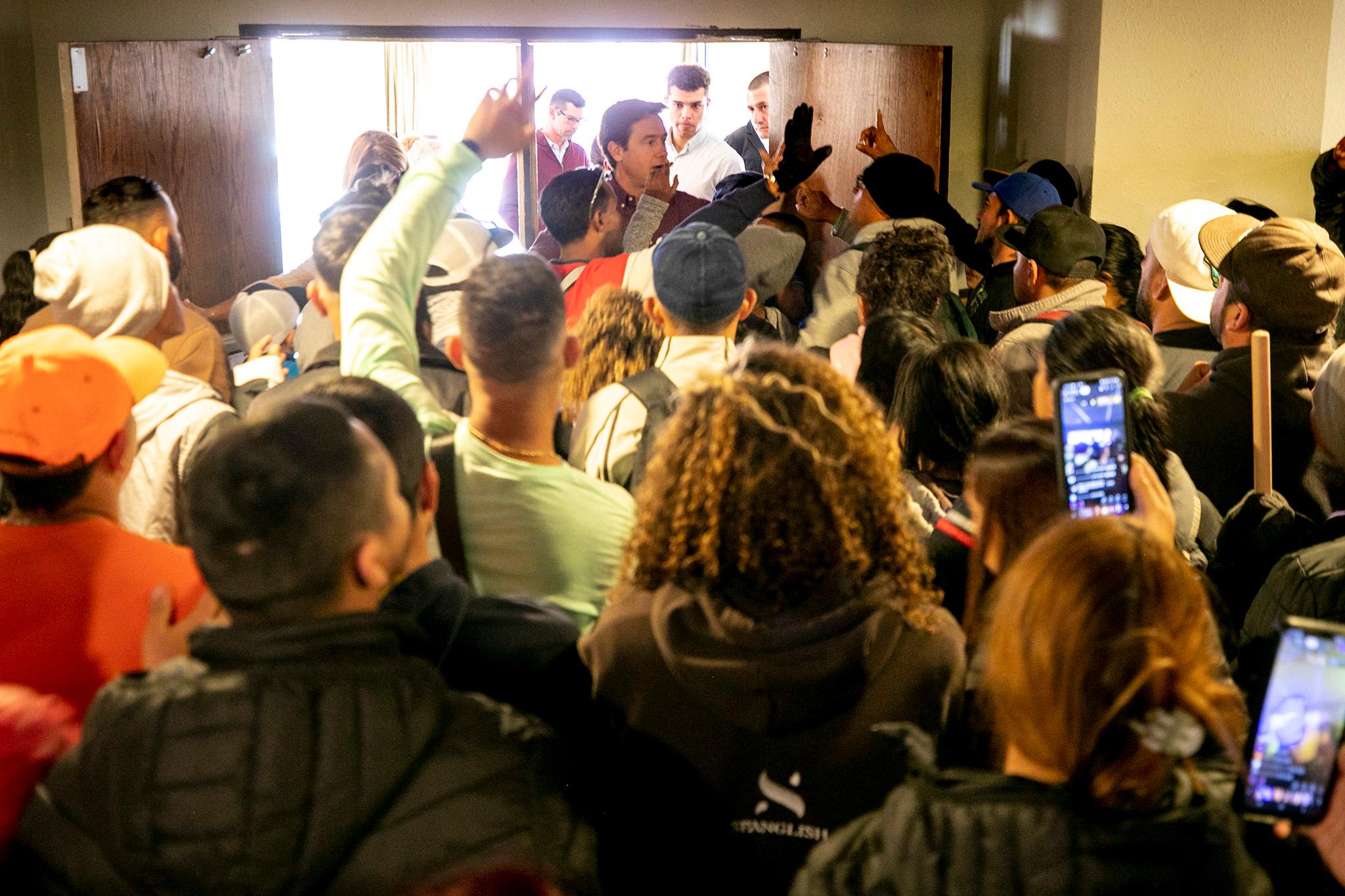
Then they opened the doors, revealing a hallway packed with people. It was clear officials didn't expect so many.
"It was much larger than we thought," the mayor told us later.
Johnston spoke to most of the people in attendance over the course of two hours, first addressing people in groups, then in one-on-one conversations.
"I can't fix all the problems right now. Today, I just want to focus on the work question," he said in Spanish to one group huddled around him on couches.
Those who didn't qualify for authorization might be able to form an LLC and work legally as a contractor, he told them, and there was someone in the room who could help with that. The crowd was receptive, and cheered when he finished his speech.
Then, someone in the group mentioned Friday was Johnston's birthday, and they sang to him loudly in Spanish.
Perez waited for her turn to speak to the mayor.
"We just want to help you work so that then we can help you live," Johnston told her, as she pulled out her phone to show him a photo of her father in a hospital bed.
"You can stay here," he told her. "We have a person there who is going to help with that."
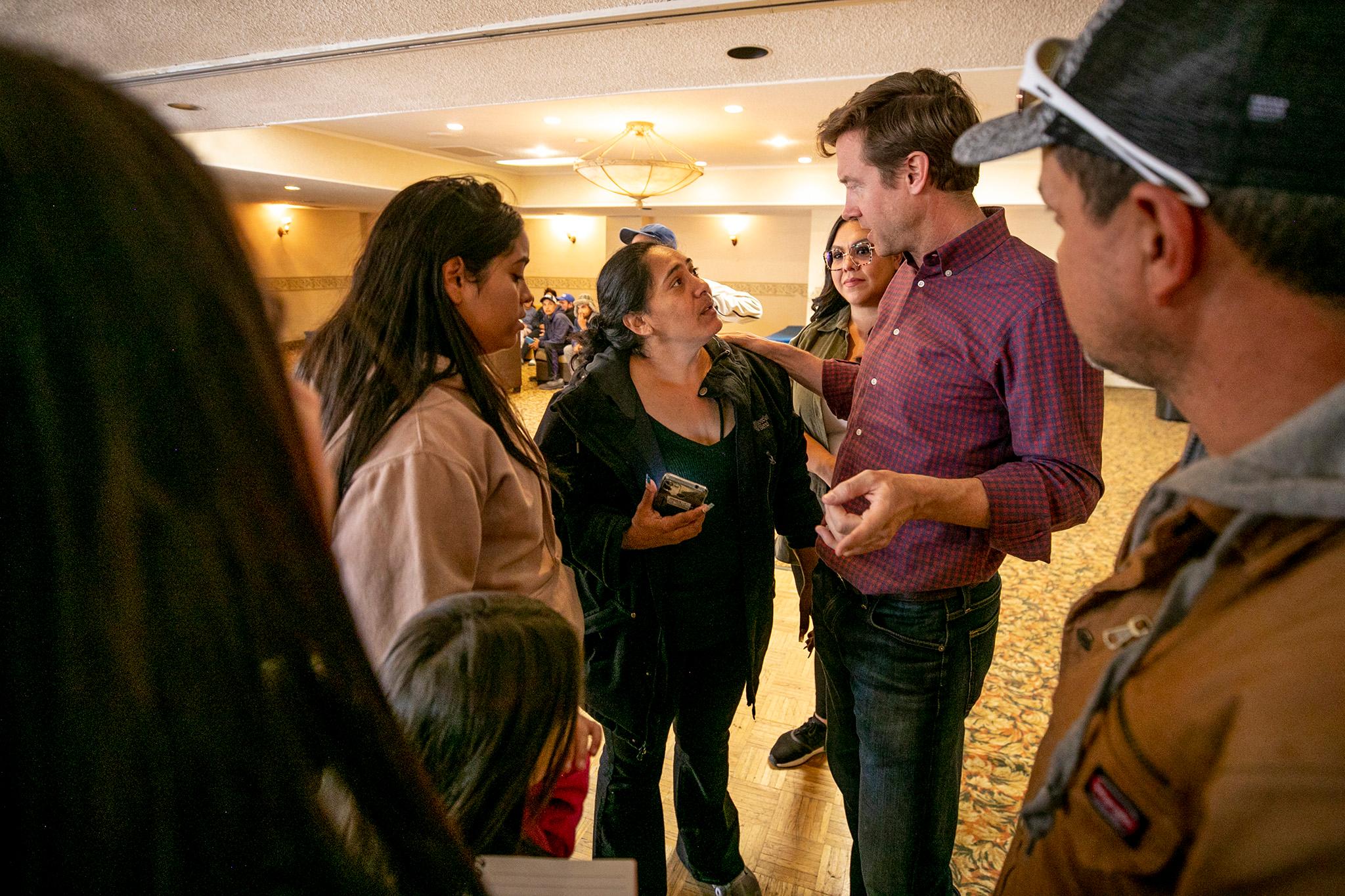
Johnston is betting on jobs to help get migrants out of tents and off sidewalks
It was a central ask during Johnston's recent visit to Washington, D.C., when he and other big-city mayors pleaded with Congress and the White House to speed up authorizations.
"If we don't have the capacity for people to work, there will always be a moment at which they're going to not be able to survive without ongoing public support," he told us after he returned to Denver.
The city is paying up to $2 million a week to keep hotels like this one open, as more and more people arrive here from cities along the border. That constant human flow is one reason new arrivals can only stay in these facilities for a few weeks. Johnston told us these hotels would work just fine as "short-term transitions," but limited access to work is stopping people from moving on.
"Even if we say we'll get you into housing, you don't have a job at the end of the month. You still got to pay the rent without a job and you can't do that," he told us Saturday. "We think there's a lot of people that can help themselves if we get them through the right application."
He guessed a little more than half of people he met in the ballroom qualified for some type of authorization.
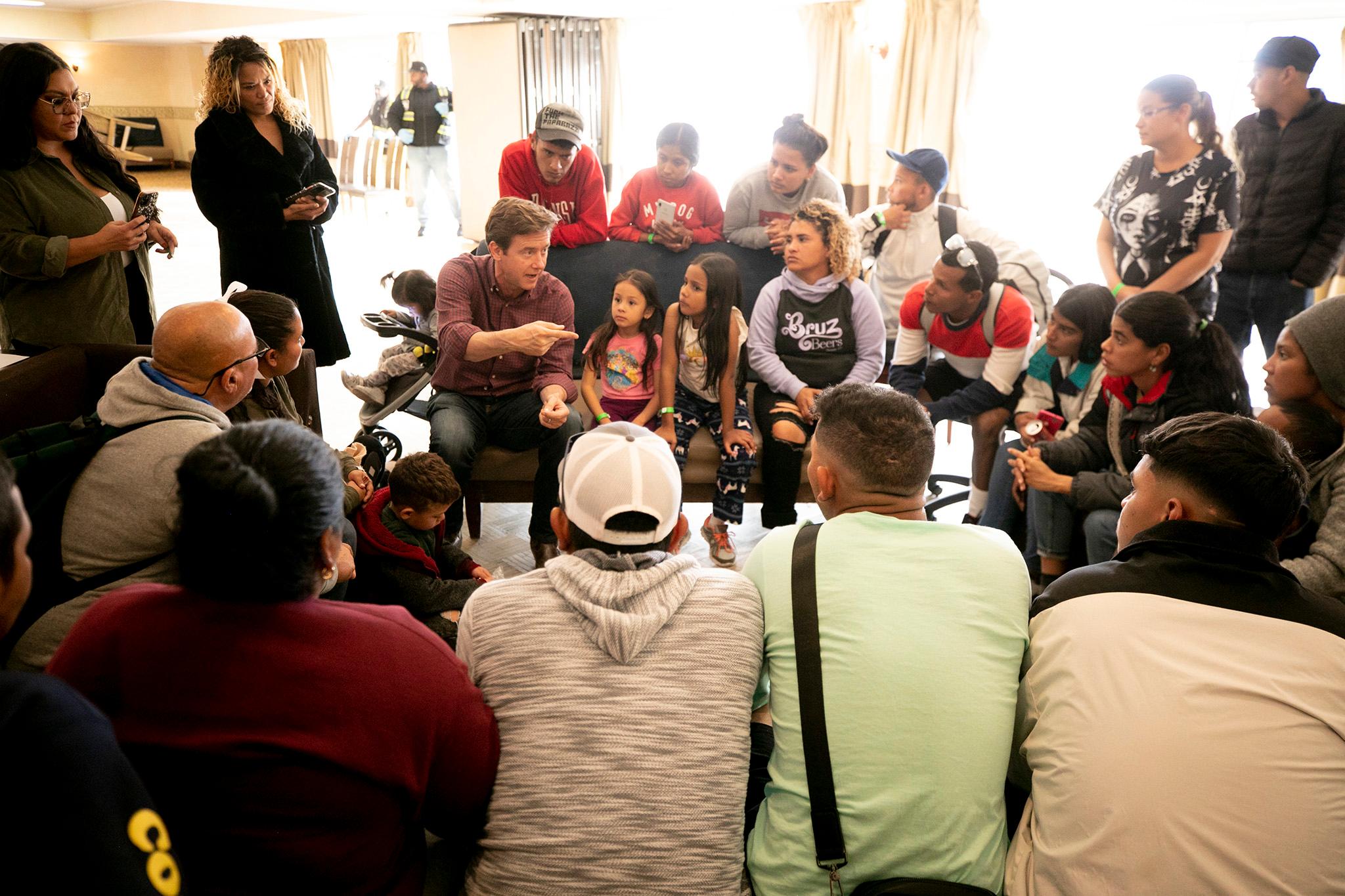
Some advocates, who've set up their own aid networks, were happy to hear about Johnston's weekend visit, but they're concerned his administration hasn't been proactive enough. Andrea Ryall, a local mom who's plugged into a Facebook group of volunteers focused on this Zuni Street camp, said officials should offer this information more consistently, and do a better job coordinating an army of residents who want to help.
Getting people set up to work is great, Ryall said, but people are still in danger as winter approaches. She worries people will continue to fall through cracks in this system.
"They need to literally set up shop in that parking lot," she told us. "The fact that our country and our city has failed to put real policy, that actually works, in place has caused this. And now, instead of being able to use our time and our talent and our resources to lift people higher up, we're in straight crisis-triage mode, where we're like, 'Another family needs a tent tonight. And another person has a sick kid. And another person doesn't have shoes.'"
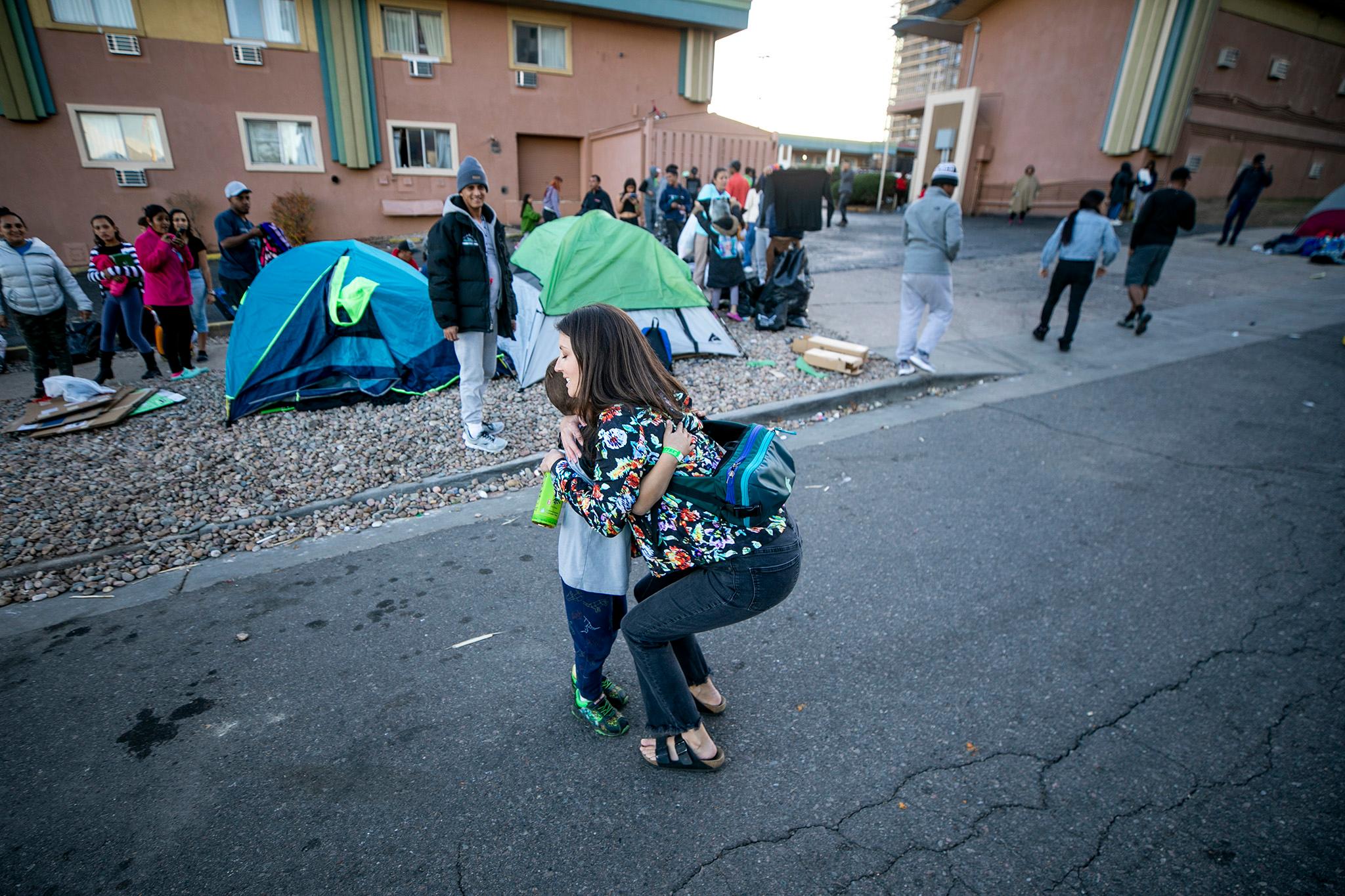
Genesis Daniel Perez, her kids and her mother, returned to their tent as people filtered out of the ballroom on Saturday. She said officials did help them begin the process to work legally, but the room that the mayor promised never materialized.
"We just have to wait and continue sleeping on the street, in the tents. Wait to see what the mayor is going to do for us," she told us in Spanish. "At least they are trying to help us. But damn, the cold is tremendous right now."

